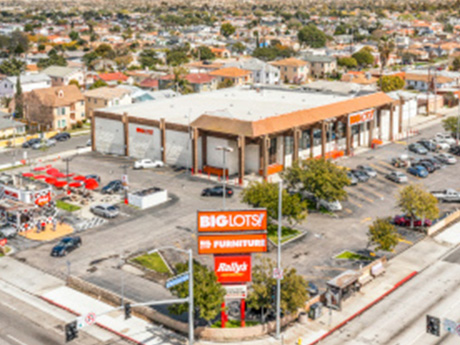Columbus, Ohio — Big Lots has filed for voluntary Chapter 11 bankruptcy protection and has entered into a sale agreement with Los Angeles-based private equity firm Nexus Capital Management, a deal that would that the Ohio-based discount retailer private.
Under the terms of the agreement, Nexus will serve as the “stalking horse bidder” (the approved investor that sets the low-end bar for a bankrupt company) in a court-supervised auction to acquire “substantially all” of Big Lots’ physical assets and ongoing business operations. Big Lots expects to keep the majority of its stores and online platform open and operational during the reorganization process as well as to be able to pay its employees and “certain critical vendors in the ordinary course of business.”
The sale is expected to close during the fourth quarter, assuming Nexus is the winning bidder. In connection with this court-supervised process, Big Lots has secured commitments for $707.5 million in debtor-in-possession (DIP) financing, including $35 million in new financing from certain current lenders. Coupled with cash from ongoing operations, the financing is expected to provide sufficient liquidity for the sale process.
The announcement comes after multiple reports of an imminent bankruptcy filing for Big Lots, which was originally founded in 1967 and operated about 1,400 stores nationwide as of the beginning of this year. In July, the company announced that it would be closing 30 to 40 underperforming stores nationwide. That figure was subsequently updated to roughly 100, then 300, in amended filings with the Securities & Exchange Commission (SEC).
Big Lots cited the larger inflationary environment and rising interest rates as the key factors behind its inability to remain financially solvent. In its first-quarter earnings report, the company posted a 10.2 percent decrease in net sales on a year-over-year basis. Big Lots will formally file its second-quarter earnings report later this month.
“The actions we are taking today will enable us to move forward with new owners who believe in our business and provide financial stability, while we optimize our operational footprint, accelerate improvement in our performance and deliver on our promise to be the leader in extreme value,” said Bruce Thorn, CEO and president of Big Lots. “As we move through this process, we remain committed to offering extreme bargains, enabling easy shopping in our stores and online and providing an outstanding customer experience.”
Big Lots did not specify the number and locations of stores that would immediately close in the aftermath of the bankruptcy filing, only stating that it would “continue to assess its operational footprint, which will include closing additional store locations.” The company also said it would be “evaluating and optimizing” its distribution centers and model for those facilities.
“Though the majority of our store locations are profitable, we intend to move forward with a more focused footprint to ensure that we operate efficiently and are best positioned to serve our customers,” Thorn said of the planned downsizing.
The stock price of Big Lots opened at 46 cents per share on Monday, Sept. 6, down from $5.62 per share a year ago. The company’s stock price last closed above $1 per share — the threshold for being delisted from the exchange — on Monday, Aug. 26.
— Taylor Williams


